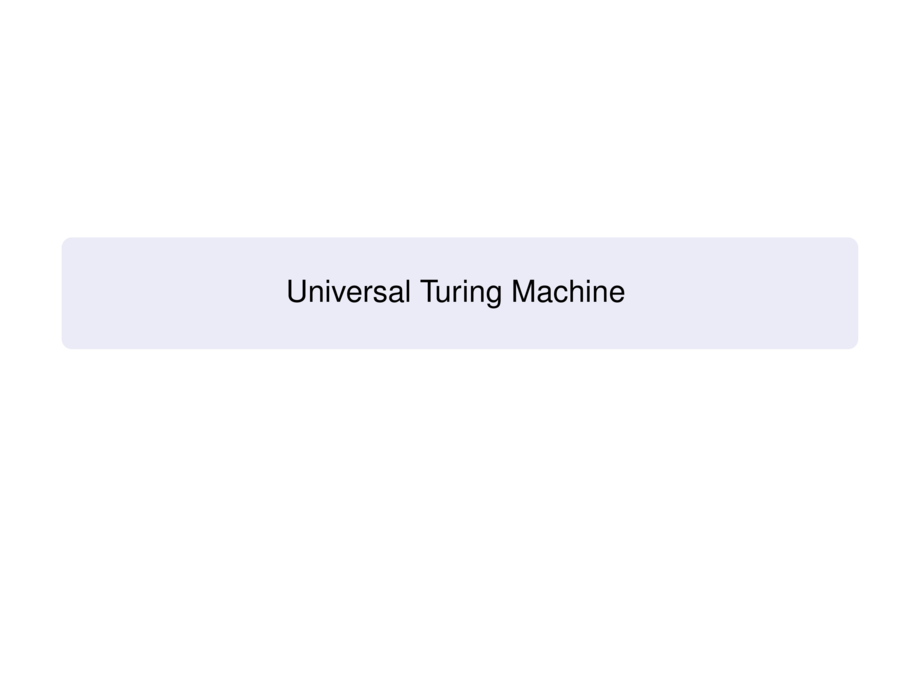



































































































82/85
\begin{frame}{Not all Languages are Recursively Enumerable}
A set $A$ is countable if there is a surjective function $f : \mathbb{N} \to A$.
\begin{goal}{}
There are \emph{countably} many TMs over an input alphabet $\Sigma$.
\end{goal}
\begin{goal}{}
There are \emph{uncountable} many languages over $\Sigma$.
\end{goal}
\pause
\begin{block}{Proof}
Let $a \in \Sigma$.
\smallskip
Assume $L_0,L_1,L_2,\ldots$ is enumeration of all languages over $\{a\}$.
\pause\medskip
Define a language \alert{$L$} as follows:
for every $i \geq 0$.
\begin{talign}
\alert{a^i \in L \iff a^i \not\in L_i}
\end{talign}
\pause
Then for every $i \ge 0$, we have $L \ne L_i$.
\pause\smallskip
Thus $L$ is \emph{not} part of the above enumeration. Contradiction.
\end{block}
\pause
\begin{goal}{}
\emph{Conclusion}: not all languages are recursively enumerable.
\end{goal}
\end{frame}
\themex{Universal Turing Machine}

